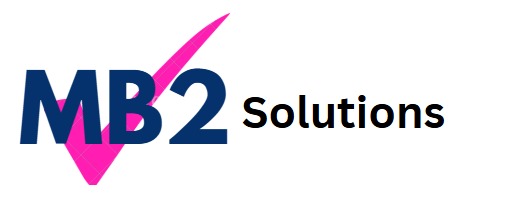
SAQA ID
49648

Credits
138
The purpose of the NQF level 2 New Venture Creation qualification is to provide a qualification that can form the basis for structured programmes for potential and existing entrepreneurs to capitalise on opportunities to start and grow sustainable businesses that form part of the mainstream economy, enabling the learners to tender for business opportunities within both the public and private sectors. This qualification is designed for learners who intend to set up or have already set up own ventures. Assessment of the competencies and knowledge in the qualification needs to be done in the context of the learner’s own new venture.
The Certificate is made up of a planned combination of learning outcomes that have a defined purpose and will provide qualifying learners with applied competence and a basis for further learning.
The qualification is made up of Unit Standards that are classified as Fundamental, Core and Elective. A minimum of 138 credits is required to complete the qualification
In this qualification the credits are allocated as follows- Fundamental : 36 credits : 27%
- Core : 70 credits : 50%
- Electives : 32 credits : 23%
- Total : 138 credits : 100%
Motivation for number of credits assigned to Fundamental, Core and Elective1 . Fundamental Component
Unit Standards to the value of thirty-six credits are allocated to the subject areas of Communication and Mathematical Literacy.
The Communications aspect focuses on basic communication skills required to fulfill entrepreneurial functions and this component caters for twenty credits
Sixteen credits in Mathematical Literacy have also been included in the Fundamental Component, focusing on the fundamental Mathematics and statistics required to complement entrepreneurial financial functions. In addition, the Mathematical component will enable the learner to utilize a range of patterns and functions to solve problems.
All the Unit Standards are compulsory.
2 . Core Component
Seventy credits have been allocated to Unit Standards in the Core Component of this Qualification. This is to ensure that the Qualification has a strong New Venture Creation focus. The Unit Standards classified as Core describe entrepreneurial knowledge and skills that are generic to various types of new ventures within varying industries/sectors. They provide an opportunity to develop knowledge of new venture creation through basic research, formal learning and business workplace practice and/or simulated situations. The Unit Standards encourage application of knowledge and skills in real situations, with particular emphasis on developing an entrepreneurial profile, matching new venture to market needs, financial management, business plan implementation, ethics and customer service.
All Unit Standards are compulsory.
3 . Elective Component
There are Unit Standards totaling Ninety-one credits in this Component. These Unit Standards develop further the competencies and knowledge contained in the Core Component by focusing on learning areas pertinent to New Venture Creation. They will enable learners to gain specialist knowledge and skills, which are particularly relevant, or of interest to the learner. The Elective Component focuses particularly on teamwork and human resources management, business awareness, administration and records management, information systems, customer and public relations and industry awareness and procurement of new work.
Learners are required to select Electives that add up to at least thirty-two credits
The minimum entry requirement for this qualification is:
- Grade 12 (Competency in the English language & Mathematical Literacy) OR,
- NQF Level 4 qualification.

Pricing

Delivery Mode
Hybrid Full Time/Online

Campus Location
Dynamic
The Qualification Is Designed to
- Develop appropriate skills and knowledge for the establishment and development of an enterprise.
- Address the economic/administrative and behavioural barriers that contribute to failures in starting and sustaining an enterprise.
- Create long-term solutions for job creation and SMME development via the building blocks and structure of a qualification that practically addresses the learning requirements of budding entrepreneurs.
Exit Level Outcomes
- Use basic Mathematics in order to fulfill new venture functions effectively.
- Apply basic Communication skills in new venture creation context.
- Determine market requirements and manage the relevant marketing and selling processes.
- Demonstrate an understanding of the sector/industry in which the business operates.
- Determine financial requirements and manage financial resources of a new venture.
- Manage business operations.
Integrated Assessment
Because assessment practices must be open, transparent, fair, valid, and reliable and ensure that no learner is disadvantaged in any way whatsoever, an integrated assessment approach is incorporated into the Qualification.
Learning, teaching and assessment are inextricably lined. Whenever possible, the assessment of knowledge, skills, attitudes and values shown in the unit standards should be integrated and the learner is encouraged to set up new venture whilst learning is underway so that assessment takes place after new venture has been set up and learning has been practically implemented.
Assessment of the communication, language, literacy and numeracy should be conducted in conjunction with other aspects and should use authentic new venture contexts wherever possible.
A variety of methods must be used in assessment and tools and activities must be appropriate to the context in which the learner is working. Where it is not possible to assess the learner in the workplace or on-the-job, simulations, case studies, role-plays and other similar techniques should be used to provide a context appropriate to the assessment.
The term 'Integrated Assessment' implies that theoretical and practical components should be assessed together. During integrated assessments the assessor should make use of formative and summative assessment methods and assess combinations of practical, applied, foundational and reflective competencies.
Assessors and moderators should make use of a range of formative and summative assessment methods. Assessors should assess and give credit for the evidence of learning that has already been acquired through formal, informal and non-formal learning and work experience.
Assessment should ensure that all Specific Outcomes, Embedded Knowledge and Critical Cross-Field Outcomes are evaluated. The assessment of the Critical Cross-Field Outcomes should be integrated with the assessment of Specific Outcomes and Embedded Knowledge.

